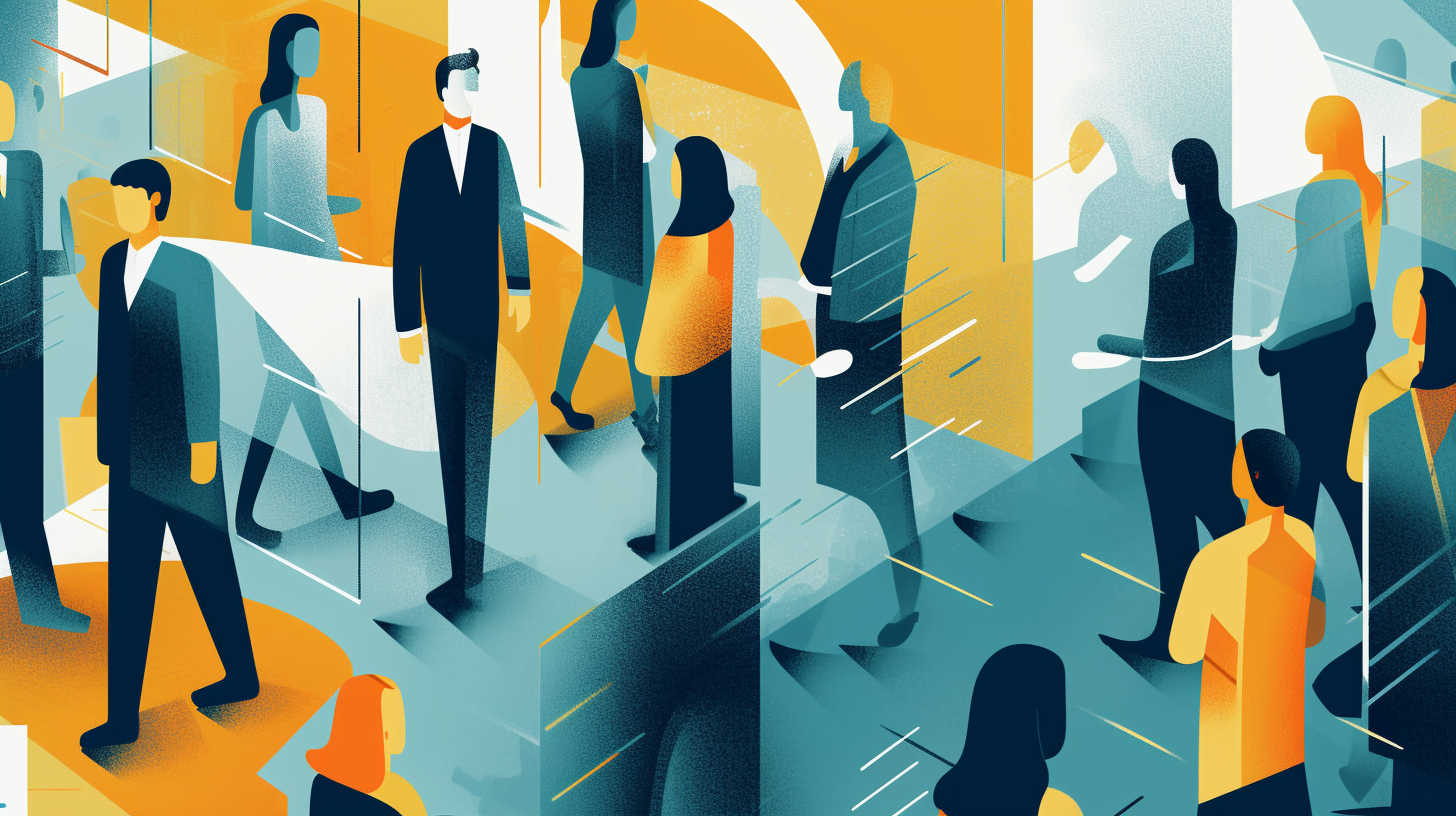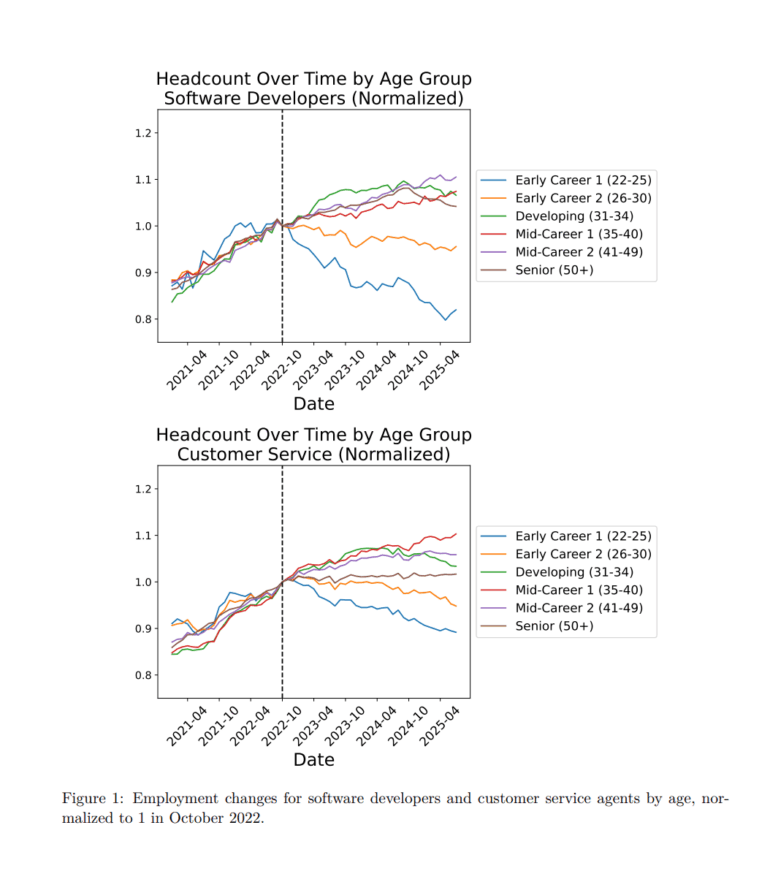AI tools like ChatGPT sharply reduce jobs for young workers in exposed fields, study shows

A new study from Stanford University, based on payroll data from millions of US workers, finds that since the rise of AI tools like ChatGPT, jobs for young people in AI-impacted fields have dropped sharply. By contrast, employment for experienced workers and in less exposed fields has held steady or even grown.
Stanford researchers analyzed the early, large-scale effects of generative AI on the US job market using anonymized payroll data from ADP through July 2025. Their findings point to shrinking job prospects for young professionals. Among workers aged 22 to 25 in the most AI-exposed jobs, employment fell by a relative 13 percent since late 2022.
Meanwhile, employment for older workers in those same fields, as well as for people in less AI-exposed roles, stayed stable or increased. The study lays out six key facts that highlight AI's impact on the labor market.
Six takeaways on AI and the job market
- The job decline hits young workers hardest. The researchers cite examples like software developers and customer service reps. For software developers aged 22 to 25, employment has dropped nearly 20 percent from its late 2022 peak. Older workers in the same industry actually saw employment rise. In less AI-exposed jobs, like health aides, employment for young people grew even faster than for older workers.
- Overall employment growth for young workers has slowed, even as the US job market remains strong. The study links this directly to AI: In highly exposed jobs, employment among 22- to 25-year-olds fell 6 percent, while the 35- to 49-year-old cohort grew by over 9 percent.

Image: Brynjolfsson et al. - The effect depends on how AI is used. Using data from Anthropic's Claude model, the study distinguishes between automating and augmenting AI applications. The job losses for young workers are concentrated in roles where AI directly automates tasks and replaces people. In jobs where AI merely assists, employment for young workers actually increased.
- These patterns can't be explained away by general economic shocks or firm-specific downturns. The researchers used statistical methods to control for company-specific effects. Even after adjusting, the significant 13 percent drop for young workers in AI-exposed jobs remains. For older workers, the effect wasn't statistically significant.
- Labor market adjustments are happening through headcount, not pay. Analysis of wage data revealed no meaningful change in salary trends, which the researchers attribute to short-term wage rigidity.
- The findings are robust across sectors, education levels, and remote vs. non-remote jobs. The effect persists even when excluding tech or computer-related jobs and applies to both remote and on-site positions. The education breakdown is telling: The impact shows up in both high- and low-degree fields. In jobs with fewer college grads, experience offers less protection - negative effects extend to workers up to age 40.
AI replaces "book knowledge," not experience
The researchers think the difference comes down to the type of knowledge AI can replace. Generative AI excels at tasks based on "codified knowledge" - the facts and formal skills learned in school or training. But it struggles with "tacit knowledge," which comes from hands-on experience, intuition, and the tricks of the trade. Since entry-level workers mostly rely on codified knowledge, they're more vulnerable to being replaced by AI than experienced colleagues.
The study's authors emphasize that their large dataset allows for a more precise analysis than public statistics. They plan to keep tracking these trends to see whether the job market adapts, as it has during previous waves of technological change.
AI News Without the Hype – Curated by Humans
As a THE DECODER subscriber, you get ad-free reading, our weekly AI newsletter, the exclusive "AI Radar" Frontier Report 6× per year, access to comments, and our complete archive.
Subscribe nowAI news without the hype
Curated by humans.
- Over 20 percent launch discount.
- Read without distractions – no Google ads.
- Access to comments and community discussions.
- Weekly AI newsletter.
- 6 times a year: “AI Radar” – deep dives on key AI topics.
- Up to 25 % off on KI Pro online events.
- Access to our full ten-year archive.
- Get the latest AI news from The Decoder.
